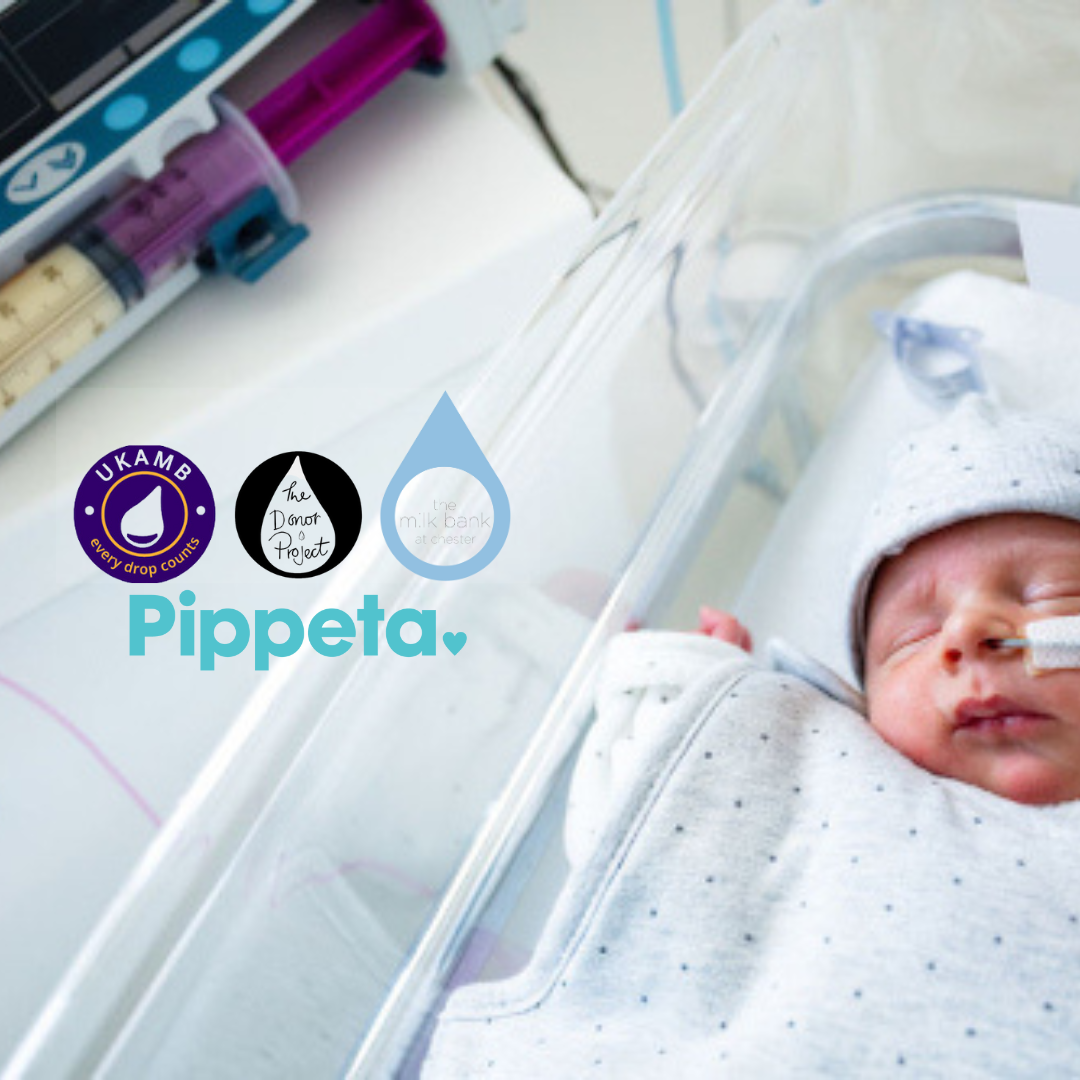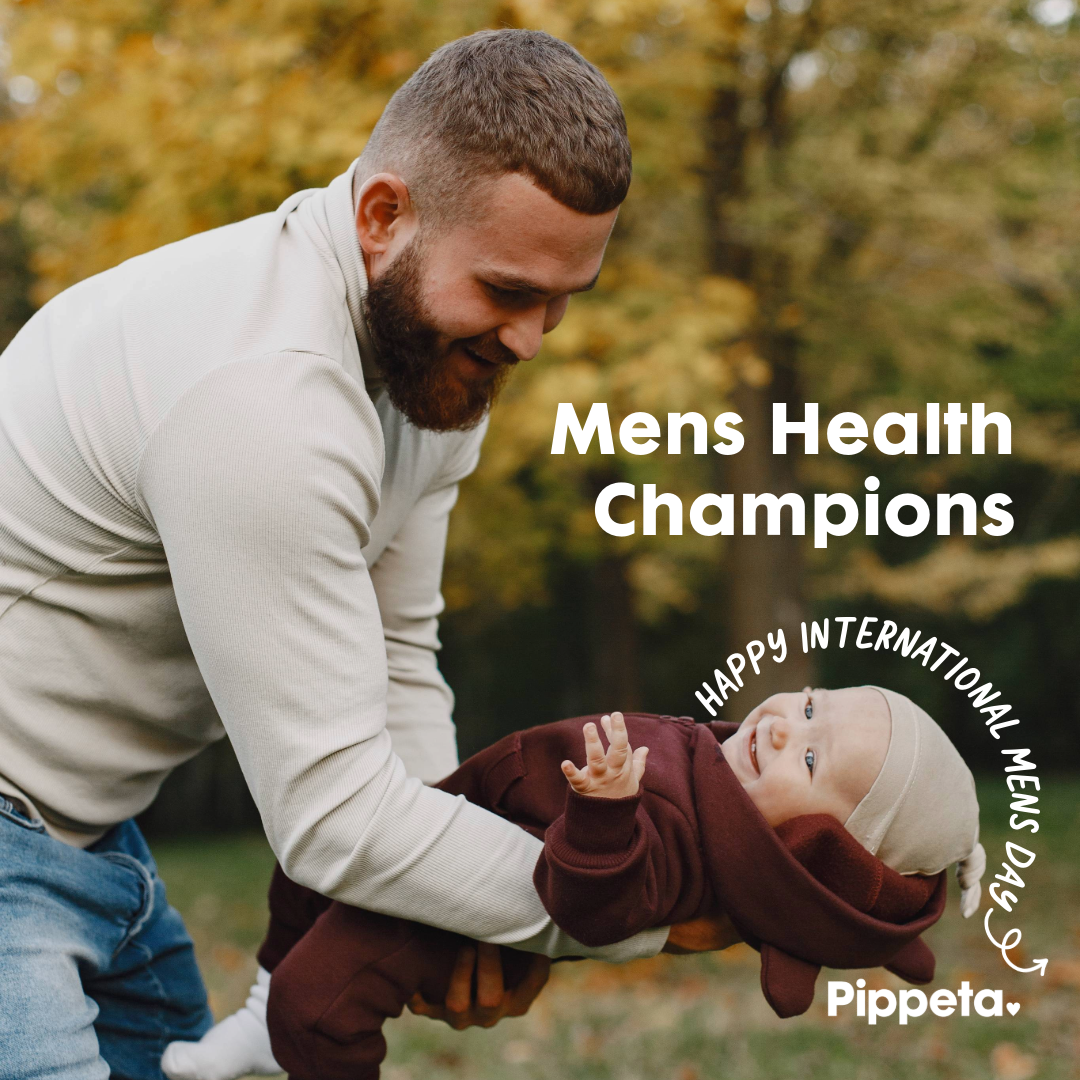Written in association with Laura Atherton from the Milk Bank at Chester.
‘I wish I’d heard about milk donation sooner!’
As a milk bank manager at the Milk Bank at Chester (England’s largest NHS milk bank) and trustee of UKAMB, this is a sentence I hear far too often! At milk banks across the UK one of our biggest challenges is raising awareness of donor milk and milk donation! We were introduced to the wonderful team at Pippeta who are keen to share milk banking with their breastfeeding community and empower any breastfeeding mother to learn more about milk donation and donor milk.
So – what is milk donation?
Donor milk from the UK’s network of 15 non-profit milk banks helps to save the lives of premature and sick babies. Breastfeeding mothers who have more milk than their baby needs can sign up to become a milk donor. Donors are screened for health and lifestyle factors by the milk bank, are required to have a blood test, and are supported by the milk bank to express milk in line with the guidelines to ensure the safety of the milk. The milk is tested for bacteria and pasteurised before being frozen and sent out to neonatal units across the UK. Milk can also be provided in some circumstances to babies in the community as a bridge to breastfeeding.
Milk bank staff are on hand to support mothers to donate milk to support other mothers whilst they build up their own milk supply, and provide safe, screened pasteurised donor milk for the smallest members of our community. The collective aim of the network of milk banks is to ensure that donor milk is available to any baby who needs it. Together, with our donors, we can work to make sure this aim a reality! Donor milk is transported across the UK by hospital volunteers and blood bikers completing the cycle ofkindness, and good will.
Are you interested in knowing more about milk donation?
Why not take a look at the UKAMB website and find your local milk bank’s contact details
I’m biased though – I have the privilege of working at a milk bank. You can hear from donors, in their own words, over at @themilkdonorproject on Instagram. And now I hand over this blog now to two wonderful donors who talk about their own journeys.
Let's hear from the donors themselves!
My name is Amy and I've been donating my breast milk since June 2023.
I wasn't sure if I was going to breastfeed at first but I gave it a try and have never looked back. It works really well for our family. The midwives had some concerns about my baby's weight gain in her first couple of weeks; I was advised to express my milk and feed her 'top ups' of my breast milk in bottles. Once home from hospital, I purchased a pump so that I could express at home. I love breastfeeding my daughter, it has helped me to bond with her and I have gained in confidence to breastfeed in public. It can be quite daunting and some people worry about reactions from others. However, I had a lot of support from family, friends and new 'mum friends' that I had made since giving birth; they helped me to develop the confidence to feed my daughter whenever needed.
One of my friends told me about donor milk when my baby was a couple of months old and told me how she had donated for a few months herself. I am very proud to donate my milk so that it can be given to those who need it. I think that it is an amazing thing for people to do and I wanted to do my part to help others.
Expressing milk has helped me to keep up my supply so I have plenty for my daughter. She is 19 months old now and I am still feeding her. The more you feed/express, the more milk your body produces so expressing and donating my milk has definitely helped me to feel more confident that I have enough milk for my daughter.
The milk bank provides everything that I need to donate my milk from sterilised bottles and ice packs to steri bags to ensure that my breast pump is sterilised before use. I email to arrange collections and the milk bank arranges a mutually convenient time for the blood bikers to collect my donation.
Before my first donation, I had a blood test to ensure that I had no illnesses that would affect my milk. My milk is tested when recieved and I will be advised when my milk is no longer suitable. I am proud to have donated 56 litres of milk in the past 15 months and I would like to continue to donate for as long as my milk is suitable. I still have enough for my baby (for feeds and to add to her cereal in the mornings) as there is no rush from the milk bank. I can donate as little or often as is possible for me.
I am grateful to have been given the opportunity to donate my milk and to help families who may need it. I hope my story can help to spread the word and encourage others to donate if they can.
-Amy
My first daughter was born in 2021, after a difficult pregnancy she was admitted to the High Dependency Ward due to an infection and as she was unable to maintain her sugar levels, they explained to me that she needed feeding to increase her sugar levels and that breast milk would help her so much. My milk hadn’t come in and I was so worried about her that when the feeding team came round to see me, I was so grateful to hear about donor milk. They explained that donor milk was available for her until my milk came in and took the time to explain how breast milk would be beneficial for her and how it would help her. As a family we were so grateful to receive the donated breastmilk which helped my little girl fight the infection, increase her sugar levels, and helped her jaundice which she had later developed.
I didn’t know that donated breast milk existed, and I had never heard of a Human Milk Bank. After we were discharged home, I found myself thinking that I would love to be able to give back. After my second baby was born earlier this year, I was in a fortunate position to have a good supply, coupled with a baby who refused to take a bottle I found I had an excess of milk. I knew that I wanted to become a milk donor, I contacted the milk bank for more information. They explained the process to me and told me more about how the milk bank worked, it was a simple process to register and after a blood test I was able to start donating my excess milk.
I will always be grateful to those involved in the human milk banks, and I hope that I can give back and support others in the same way I was supported.
- Sophie and baby Evie.
Pippeta's support for the life-changing work of the Milk Bank at Chester and UKAMB
At Pippeta, we are incredibly proud to support the life-changing work of the Milk Bank at Chester and UKAMB (United Kingdom Association for Milk Banking). Donor milk plays a vital role in saving the lives of premature and sick babies, offering them the best possible start when their families need it most. The dedication of breastfeeding mothers who generously donate their milk, alongside the milk bank teams and volunteers, is nothing short of inspiring.
Breast milk is nature’s ultimate nourishment, packed with antibodies, nutrients, and enzymes that protect and support the development of babies, particularly those in neonatal care. For families facing challenges such as premature births or maternal health issues, donor milk is a lifeline.
If you’re a breastfeeding mum with extra milk, milk donation could be your way of giving back and helping other families in need. The process is simple, and milk banks like Chester’s provide all the guidance and support you need to express and donate safely. Visit the UKAMB website to find your local milk bank and learn more about becoming a donor.
We’re excited to collaborate with the Milk Bank at Chester on upcoming projects to raise awareness of milk banking and inspire more mums to get involved. Together, we can support more families and empower the breastfeeding community to make a difference. Follow us to stay updated and join this incredible movement of kindness and care.
-The Pippeta Team


















Leave a comment
This site is protected by hCaptcha and the hCaptcha Privacy Policy and Terms of Service apply.